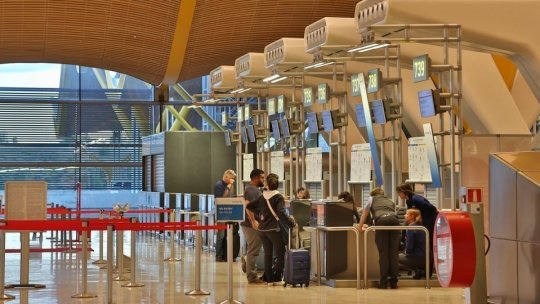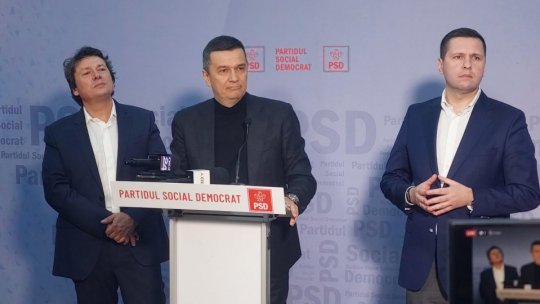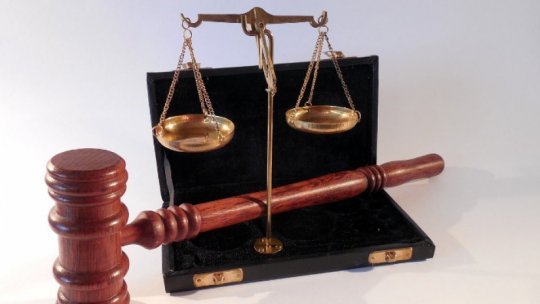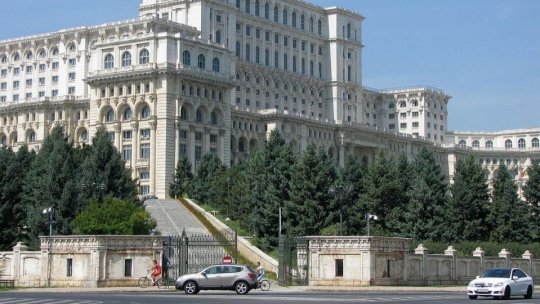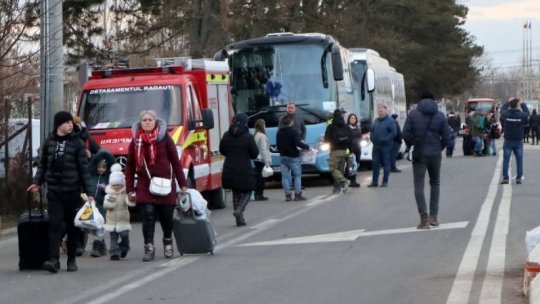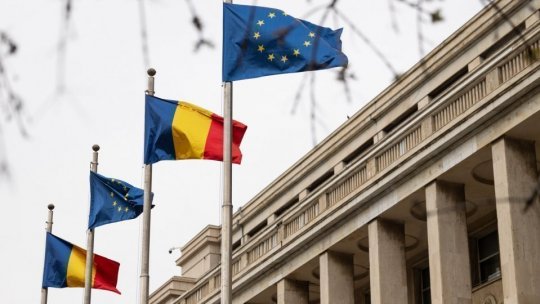New security architecture of the European defense
New challenges for the European security include computer crime, terrorism, migration, nationalist ideologies but also disinformation.
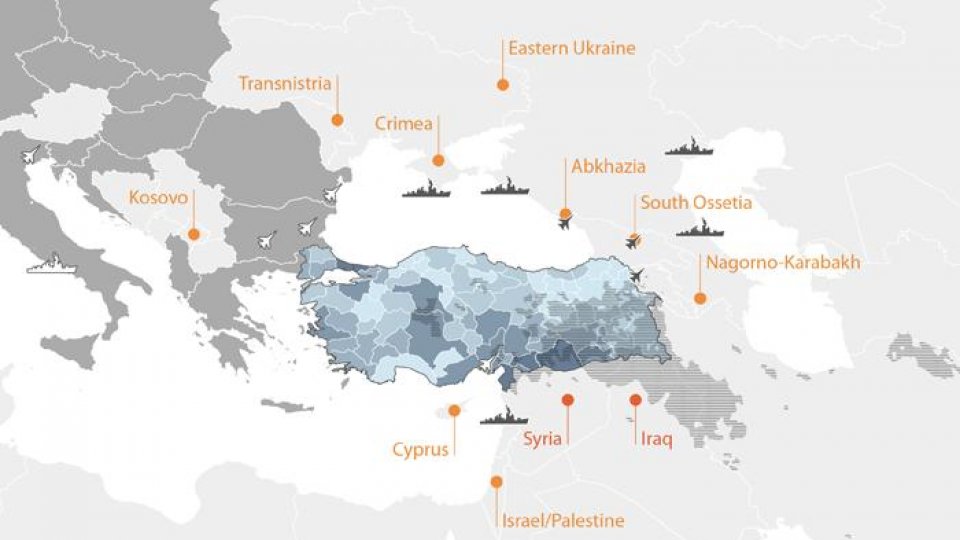
13 Octombrie 2019, 19:31
New challenges for the European security include computer crime, terrorism, migration, nationalist ideologies but also disinformation. All these challenges require a rethinking of the European security architecture, a topic that latest edition of “Euroatlantica” (Radio Romania News Channel / RRA) analyzes together with Hari Bucur Marcu,expert in defense policies.
RRA Producer Radu Dobriţoiu: Mr Bucur-Marcu, last few years have come with new challenges for the European security. Classic war seems to have remained in the history textbooks. We now have a very clear example, if you want to take control of a country, you can do so economically, you do not need troops for this. Virtual space has become the main conflict area. These developments require an adaptation of the European defense to these new realities.
Hari Bucur-Marcu: In a way, you are right, but we have to be a little careful when using words. There is a lot of background noise, so to speak. When people hear about defense, they automatically think about tanks and cannons. When people hear about security, they automatically think of spies and information, hybrid actions or psychological operations - which narrows the meaning a lot, although the main phenomenon that has manifested over the past 25 years, so to speak, immediately after the fall of communism, was the one of explaining defense and security. During the Cold War there were the two antagonistic blocs which could have killed the planet several times with nuclear missiles, both from one side and the other.
Radu Dobriţoiu: Even now it’s not too late, they still have ...the threat remains.
Hari Bucur-Marcu: The threat, the problem remains, but what I want to say is that at that time, governments were the ones to decide, no one asked anyone from public, no country asked the public: what would you like? Would you like more peace, more armament or what? For 25 years now, so for a generation since then, the topic has become very popular among the public. People say their opinion. There is /.../ this internet network, where the world is increasingly socializing.
Radu Dobriţoiu: And yet it has grown exponentially. We see a lot of social media, with a great importance in communication and even in the information war.
Hari Bucur-Marcu: Exactly, plus there is a new environment in which combat operations are also going on, it’s called cyber environment. However, although these changes with socialization, with the emergence of a new environment of combat actions besides the water, soil, air and outer space, the military power of the states is a very important factor.
Radu Dobriţoiu: Certainly, but we are talking about the new architecture of the European defense. It seems that all these evolutions over the past, say, five years have surpassed all these capabilities of deterrence and defense on the old continent. Because we see disinformation, propaganda that has developed a lot, spreading also on the internet and the cyber space, as you said, which offers new opportunities for everyone to express themselves, to resort to disinformation, to make propaganda, execute certain hits on targets, starting from civilian targets and reaching military targets.
Hari Bucur-Marcu: Allow me to tell you something about myself, in just 30 seconds. In 1990, I started working in the Psychological Actions Service within the Defense Staff.
Radu Dobriţoiu: PSYOPS.
Hari Bucur-Marcu: Not only PSYOPS but also psychic protection, which is just as important, if not more important than the psychological operations (…) , and I did a very serious research. I want to tell you that one of the topics I researched at the time was: how much can someone - group of people, professional category or even a whole society - be psychically influenced by words. I found out that in reality, chances are very little.
Radu Dobriţoiu: At that time. How about now?
Hari Bucur-Marcu: At any time. Let's take it this way, because this idea comes from ancient times. There was this idea that you could win by words a victory far more important than using a weapon against an enemy; that (..) you never use psychological actions against your own people. (…)The reality is, though, that left without defense, this can become harmful. There have been cases during the World War II, conflicts where people became scared and acted illogically.
Radu Dobriţoiu: Returning to our theme "New architecture of the European defense". Bucharest hosted, recently, a conference titled "Defense, Security and Intelligence for the European Union", organized by Eurodefense Romania in collaboration with the Defense Commission of the Romanian Parliament. Leaders from national Eurodefense organizations from over 10 countries, representatives of civil and military institutions in the field of defense participated in this event. President of EURISC Foundation, also President of Eurodefense Romania, Liviu Mureşan told Euroatlantica that this has been a special event and it was great that Romania hosted it.
Radu Dobriţoiu: Issue of European defense is becoming increasingly complex and has been many times analyzed in recent years. EU has recently decided to have a Commissioner for Foreign Affairs and Security Policy. In 2018, the concept of European defense has also developed. Is it everything going in parallel with the North Atlantic Alliance or is it some kind of useless theory situation? There is much discussion, but we do not see a very clear horizon for a European army or for an integrated, interoperable European defense industry, in which the states of the EU can participate.
Hari Bucur-Marcu: This is a work in progress, meaning it is discussed a lot and not just since recently. I attended such a discussion in '96, in Paris, when the French Chief of Defense at that time announced France was ready to borrow the French nuclear button to Germany in such a configuration of European military power, because you realize that we have two nuclear powers in Europe: France and the United Kingdom. And France ...
Radu Dobriţoiu: In the EU, in Europe we also have Russia.
Hari Bucur-Marcu: I'm talking about those who can use ...
Radu Dobriţoiu: Who can react ...
Hari Bucur-Marcu: ... (…) almost 25 years have passed and yet (..) there are still discussions. Only a few steps have been taken, like the recent Conference in Bucharest, showing that the problem exists, is not ignored, but from here to coming up with a real European policy of security and defense, to constitute a military power composed of troops, equipment and especially procedures and missions, so as to carry out strategic missions at global level, because within the EU there is no need, but at global level ...
Radu Dobriţoiu: Now we are thinking of the expeditionary forces of France and the United Kingdom.
Hari Bucur-Marcu: They have them but for relatively modest missions. I am speaking now of a counter-balance for the two world military and economic powers, the US and China. The USA is practically the guarantor of European security, so the European security architecture means the military power of the US, the others…
Radu Dobriţoiu: You have reached another topic, because we are discussing the architecture of the European defense. There were signals sent also by the Trump administration that the US might consider a withdrawal from NATO, which would mean a lot.
Hari Bucur-Marcu: It would mean the disappearance of NATO. Without America, there is no more NATO.
Radu Dobriţoiu: Disappearance of NATO would be a challenge for the European defense architecture. Everything should be rethought. We have to think about that too.
Hari Bucur-Marcu: For almost three years now, I have learned to read between the lines when Trump talks, please believe me. He talks a lot, but if you look at what he does, and especially the people he uses in order to act, you suddenly become calmer. Indeed, it is frightening to listen to the American President /.../. This thing has worked for 50 years, we had no wars in Europe except very small wars, as it was in Yugoslavia or ... Otherwise, this security arrangement made with American military presence on the territory of Europe has worked for years. And all of a sudden: we want to leave! I mean, what does he want, to throw Europe into chaos? But he often makes these threats in his characteristic style, after all he is the author of a book on how to do business.
Radu Dobriţoiu: Yes, there is a need for a better understanding of the security issue, as said the President of Romanian Chamber of Deputies, Marcel Ciolacu, at the opening of the Conference "Defense, Security and Intelligence for The European Union".
Marcel Ciolacu: In the Romanian society, there is a major security culture deficit. Therefore, I believe that multiplying events such as this conference can contribute to an improvement of this reality. I think we have to develop the security culture in order to be able to respond effectively to the new challenges, and here I first think of the unconventional aggressions, such as cyber-media, but also of the economic ones, which ultimately affect security of the countries. Together we must develop programs dedicated to the development of the culture of security at the level of citizens, but also at the level of political decision-makers. It is important to do this, because security at present time is not only a priority for institutions, but also for local communities and citizens. In this context, I consider that the national parliaments have the obligation to improve the existing legislation in the field of security and defense. More than ever, we must demonstrate maturity and coordinate our policies with the other transatlantic democracies, in order to strengthen the strategic arc of Western defense. We are in an extremely sensitive geopolitical context and only through solidarity and coordinated action at EU and NATO level will we be able to find solutions to overcome the crises and uncertainties that are being planned on multiple levels. And here I want to remind of what is happening on the eastern border of the EU, where in recent years we have witnessed countless violations of international law in the emergence of hybrid threats and extension of frozen conflicts. I hope that we will continue to work together for a stronger and more visible Romania at global level.
Radu Dobriţoiu: A better understanding of the security issue, Mr. Hari Bucur-Marcu, this is very important, especially since we are witnessing an explosion that eventually led to that communication /.../, because we have this internet, which has brought us all closer.
Hari Bucur-Marcu: Yes, but again I tell you, I do not want to minimize a very serious problem, but actually society has learned a lot when the Internet appeared ...
Radu Dobriţoiu: McLuhan didn't know anything about the internet.
Hari Bucur-Marcu: First of all, there are a lot of opinion leaders, "influencers" - as they are now called.
Radu Dobriţoiu: More and more with new capabilities ...
Hari Bucur-Marcu: In general, they have a limited audience, not the general public. What the President of the Romanian Chamber of Deputies says in his speech is that, compared to the international phenomenon that I pointed out, this problem is socialized and he considers that in Romania, socialization is still not done correctly, meaning that people who talk in the public space about security and defense issues are not competent, and those who would only be interested in listening, not in making their own opinion, do not always listen to competent people (..) to give a very short example, at some point, an issue we discussed with the public was the hybrid war, although it hadn't happened yet ... We saw it in 2014 in the Crimean Peninsula.
Reporter: It's a concept invented by a Russian officer [Evgheni Messner].
Hari Bucur-Marcu: No, no, wait a minute.
Radu Dobriţoiu: According to historical data.
Hari Bucur-Marcu: Everyone says that the Iron Curtain was a concept of Churchill, and it was actually of Ribbentrop...
Radu Dobriţoiu: It was a White Army officer who defined the concept.
Hari Bucur-Marcu: You can name anything hybrid, but it would have no reason. I want to tell you that when defining this operational concept, there are studies, all kinds of tests, exercises, simulations on the topic. There are people who are brought in, who have not heard of this concept, and are commanded to operate with the concept, to see what happens, how far improvisation can get. These things were done over a period of time, during 2005-2014. About nine years. Regulations, instructions, doctrines and so forth came up, very serious things - so we are not doing small talk now – and then the Russians simply put them into practice in the most concrete way, with those “little green men” who didn't know ...
Radu Dobriţoiu: Not only, with parallel operations, informational war.
Hari Bucur-Mari: So hybrid war is when a state acts ...
Radu Dobriţoiu: It has several elements.
Hari Bucur-Mari: Yes, but you can only call it hybrid when a state acts without assuming responsibility for the action.
Radu Dobriţoiu: It is one of the components, of course.
Hari Bucur-Mari: It's the most important.
Radu Dobriţoiu: Back to the new architecture of the European defense. We have to think - we enter the "5G Era", which is compared to a new industrial revolution. It is very important. During conference "Defense, Security and Intelligence for the European Union", Victor Vevera, Technical Director at the Romanian National Institute for Research and Development in Informatics, stressed that "5G Era" brings new challenges to European security.
Victor Vevera: Switching to 5G, a broadband internet that will ensure a much larger number of more complex applications, so a larger volume of data, with ever-increasing metadata - all this actually transforms what used to be an old classic battlefield into an extended battlefield. As has been said, from now on, the war will not necessarily be on the field, but in the virtual area, it will reach the media area, which has recently moved, in an overwhelming proportion, on the internet. It will go to social networks, it will go to the area of applications, everyday applications we use on phones, on drones, on smart TVs, on other equipment that, in one way or another make our life much easier, but at the same time, without being protected and without being used so as not to create an open door, they can turn our life into hell.
Radu Dobriţoiu: Mr. Hari Bucur-Marcu, a new battlefield, where Europe must defend itself, must adapt.
Hari Bucur-Marcu: I named it environment for combat actions. Of course, yes, we are interested in the military side, because a small dispute cannot turn into a war. If we can quarrel with each other, but there is no war, it is an environment for combat actions. The military have their own configuration - hardware and software - for this task and of course ...
Radu Dobriţoiu: Europe will have to adapt and act in this ...
Hari Bucur-Marcu: Europe acts without any problems.
Radu Dobriţoiu: Răzvan Roceanu, graduate of the Institute of High Military Studies in Paris, my colleague from Radio Bucharest, had an intervention during conference "Defense, Security and Intelligence for the European Union": World news presses us to think and react. If we cannot do that as decision-makers, at least we have to allow exchanges of ideas, to stimulate productive debates. It is our duty to realize that we live in a global environment that is becoming more and more tense, paradoxically, after the end of the Cold War, and where new or until so-far inconceivable threats are emerging. Given these threats, we must sound an alarm and, above all, we must propose realistic and achievable solutions.
Radu Dobriţoiu: The power to create exchanges of ideas and productive debates, which we are also trying here, at Radio Romania News, at "Euroatlantica". How important is it to develop this type of communication, even for the European defense architecture?
Hari Bucur-Marcu: It's vital. We cannot bring the public into discussion, make it a partner of discussions, as long as we do not really talk or in situations where each one speaks alone, without being listened to, being ignored (…) As I said, there are environments of military action, where the public is more or less present. Maybe for now less in the outer-space, but soon we will have the privatization of the cosmos, too.
Radu Dobriţoiu: Europe is facing some challenges that the last decade has brought and it must finally defend itself, which is why this important conference recently took place in Bucharest - "Defense, Security and Intelligence for the European Union". "Euroatlantica" at the end. Theme of the edition was “New security architecture of the European defense”, which we will surely discuss again some time, because it can be approached from several perspectives and from different points of view. Guest in the studio was Hari Bucur-Marcu, expert in defense policies. I am Radu Dobriţoiu, Producer of Radio Romania News "Euroatlantica" and, along with Producer Nicu Popescu, thank you for following us.
Source:RRA.Translated by Miruna Matei

